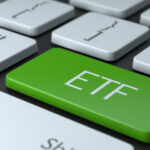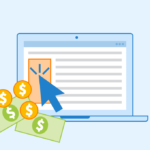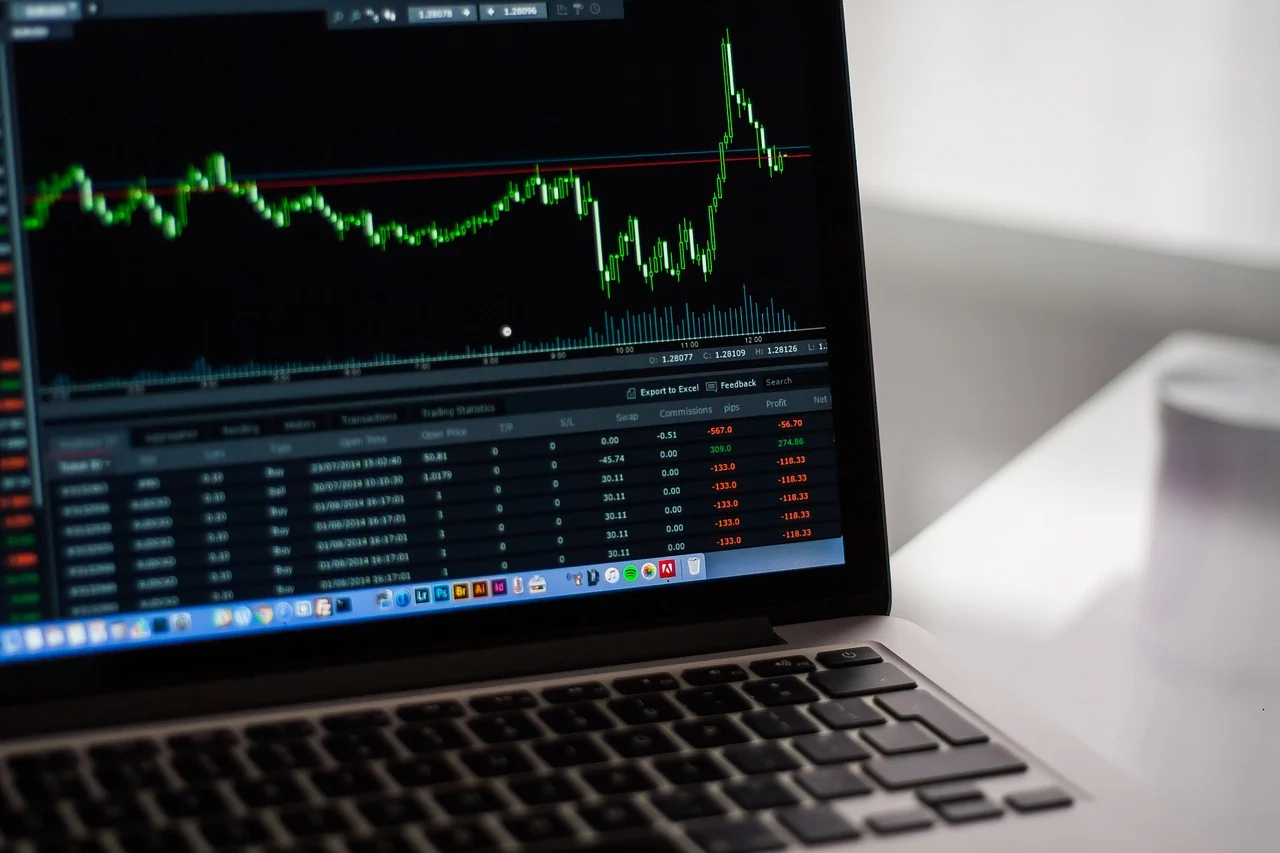Exchange Traded Funds, or ETFs, offer you an efficient, risk-reducing and cost-efficient way to invest your money and thus make money (or lose it if things go wrong) in a way that is less complicated compared to similar diversified products. While ETFs technically exist since 1993, their popularity has really skyrocketed in recent years. And there are some very good reasons for that. In the following article you’ll find out what ETFs are, their advantages, disadvantages, about the different types of ETFs and most importantly how you, too, can trade and make money with them.
For the most part, trading ETFs in practice does not work much different from trading Forex or CFDs, but there are some specific aspects about ETFs worth knowing.
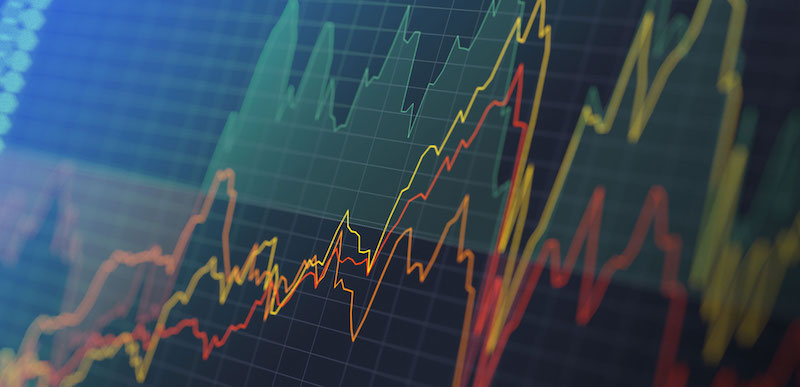
What is an ETF?
Simply put, an ETF basically works like a stock market index: In the usual case, a fund company takes the investors’ money and buys all the securities that are contained in the index. Most of those are stocks or bonds. An easy example: The well known S&P 500 Index is tracking the worth of 500 large American companies. An ETF that tracks the S&P 500 would now buy shares of exactly these 500 companies – and then develop correlationally to the S&P. This way you can profit from the S&P 500 for a considerable lower investment.
Of course this is only the simplest, most standard of examples. Since the first one in 1993, there now have been over 5,000 different ETFs on the market, containing a variety of combinations of different stocks, bonds, indices, etc. Unlike mutual funds, ETFs are traded like normal stocks with an (intraday) change in value throughout the day. They are put out by the respective ETF providers like Vanguard, BlackRock (under their iShares brand), State Street (under their SPDR brand), Charles Schwab, etc. and then sold by a market maker a.k.a. broker. Not all brokers will offer all ETFs, but several brokers may offer you the same ETF.
Types of ETF
There are now several types of ETFs, which differ primarily in the category of indices/stocks they track. Some of the most popular ones:
Index ETFs
We have already mentioned this type of ETF above. Index ETF are the most standard, most common and most liquid ETFs available. You can track pretty much any of the most known indices around the world. Be it Dow Jones, S&P 500, the German Dax, the Japanese Nikkei 225, the British FTSE 100, and many many more.
Sector ETFs
Sector ETFs concentrate on specific branches or sectors of the economy. They can for example track the value of companies within the financial industry, the consumer goods industry, the pharmaceutical industry, the heavy industry, etc. Such ETFs allow you to profit from an overall strong performance of a certain industry without having to rely only on one particular company stock within it.
Thematic ETFs
Thematic ETFs are closely related to Sector ETFs, but instead of focusing on one particular economy sector, they center around a certain topic and track companies involved in such. This means thematic ETFs can sometimes contain stocks of companies that are involved in different types of industry, but are both involved in a certain topic. Examples include for example Artificial Intelligence (ETFs that track companies involved in A.I.), Blockchain, Cloud Computing, Cannabis, Clean Energy, Genetics, and many many more topics.
Commodity ETFs
Commodity ETFs focus, as the name already pretty much gives away, on specific commodities. This includes oil, natural gas, gold, silver, copper, etc. Commodity ETFs track both the price of the respective commodity, but can also contain stocks of companies that are involved in producing/extracting said commodity.
Bond ETFs
Bond ETFs track bonds of certain countries, regions, credit ratings or other categories. Among these, high-yield bond ETFs are particularly popular for traders as they can profit from them while diversifying across several securities.
Smart Beta ETFs
Smart Beta ETFs are the most complex ETFs. They are not only basing their funds on market value but also on other factors such as volatility, cash flow, turnover and other ones.
Inverse ETFs
So far all the styles of ETFs listed let you profit from price increases, just like with traditional stock trading. But Inverse ETFs are constructed to also let you profit from falling prices. This way you can invest into what you consider bear markets without having to short sell any assets.
Multi-Asset ETFs
Multi-Asset ETFs are diverse funds that contain differing asset classes (bonds, shares, various types of ETFs, etc.)
There are of course a few more kinds of ETFs. And since it’s a rapidly emerging market, some more could be added practically every year. But with the ETF types listed above, you’ll generally have more than enough choice to make money.
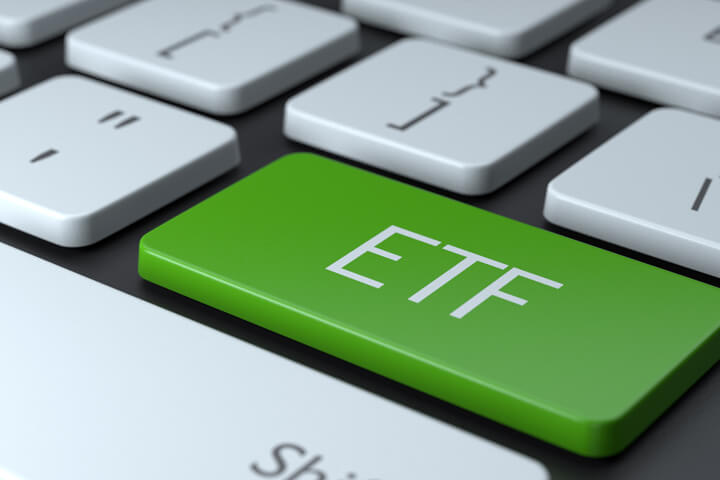
Advantages of ETF Trading
So why have ETFs become so popular among investors in recent years? Here are the main reasons:
Cheaper than mutual funds
ETFs share some similarities to mutual funds. But they are much cheaper with significant lower fees which has a great effect on the profit prospects for investors. Simply put, ETFs allow you to make money from indices and other asset classes for much lower investment fees which is why ETFs are particularly popular among investors on a limited investment budget.
Great diversification opportunities
Diversification is key to a successful long-term investment strategy. ETFs allow you to diversify your investments both among different asset classes as well as within one asset class. Compared to a normal diversification with stocks, ETFs also offer you a much more cost efficient and time efficient way to allocate your assets.
Quick and easy way to invest
Following the last point, ETFs provide a comfortably quick and easy way to make money from market developments. This makes them particularly attractive for beginners.
Profit from certain topics and economy sectors
The many types of ETFs allow you to make money from various market developments. If you have knowledge about a certain industry or a certain topic, you can profit by betting on a general bullish market (or bear market through inverse ETFs) instead of relying on single stocks from companies that are always also influenced by factors that have nothing to do with the industry as a whole.
Tax advantages
In most countries (including the U.S.) as an ETF investor you will only have to pay capital gains taxes on the ETF sale as a whole, not every time you sell an individual stock within the fund as is rule with mutual funds. This offers you a much more tax efficient way of investing.

Disadvantages of ETF Trading
The only really disadvantage of trading ETFs, aside from the general risk of every financial instrument, stems from the fact that an ETF by definition is unable to outperform the indices they track. They will only stay below the actual index performance. This means ETFs only offer so-called beta returns instead of alpha ones.
While ETFs sometimes can pay out dividends (as shown above), the yields will usually be considerably lower compared to high-yield stock or other funds since ETFs tend to track broader markets. But in exchange the risk of owning ETFs is also lower, so in risk-reward terms, these two effects pretty much even out.
How to choose the right ETF?
When investing into an ETF, you should consider the following three aspects before making your choice:
Type of ETF
As seen above, there are many types of ETFs. Not each of them is suitable for every investor. While you of course can end up making money with every fund, there are some general rules to consider. As a beginner, you should generally stick to the less complicatedly constructed ETFs, such as Index ETFs, which are less risky for long-term investments. At the end of the day, it’s all about your knowledge and feeling about the relevant markets or stocks within an ETF of course.
Age of ETF
Age is another factor you should consider when choosing an ETF. The general rule is: The longer an ETF has been around, the more reliable it can considered to be. ETFs that have not been very profitable for investors, usually will not survive on the market. Conversely, ETFs that have been on the market for a long time, can generally be considered as more reliable and profitable as they have passed the test of time.
Expense Ratio of ETF
While ETFs are relatively cheap in general, they still can vary quite a lot in their investment costs. The best way to calculate the cost of an ETF is through its expense ratio. The expense ratio shows you the annual fees you have to pay for every $1,000 you invest. An average ETF has an expense ration of around 0.4% to 0.5% which means you have to pay an annual fee of $4 to $5 for every $1,000 you invest into the average ETF. More traditional index ETFs tend to be more expensive, however. They carry an average expense ratio of around 0.7% to 0.8%.

How to start trading ETFs and find the right Broker
Now that you know the basics of trading ETFs, you can start investing in them. To start trading ETFs, you need a broker that offers them. Just signup with one, make your initial deposit and then start trading and hopefully make money! When choosing the right ETF broker, you should consider the following aspects:
Reputation
The reputation is always among the most important factors when choosing any broker for any financial instrument you want to trade with. Read up on what other investors say about their experience with a particular broker. A reliable broker should be able to reliably and quickly carry out your trading commands as well as offer a reliable payout process. The age of a broker can also serve as an important indicator here, as untrustworthy broker tend to not last very long on the market.
Good Trading Platform
Your trades will be carried out on a trading platform which your broker provides. The platform should be well designed and provide all the information that you need to enable you to properly analyze and carry out your trades. Most brokers allow you to open up a demo account which is always a good way to test out the platform before investing serious money into it.
Available ETFs
As mentioned several times, diversification is key to almost all successful investment strategies. A good broker should therefore offer you as many ETFs as possible, as this will allow you to diversify your portfolio and offer you more chances to make money from a higher number of indices, economy sectors, themes/topics, etc.

